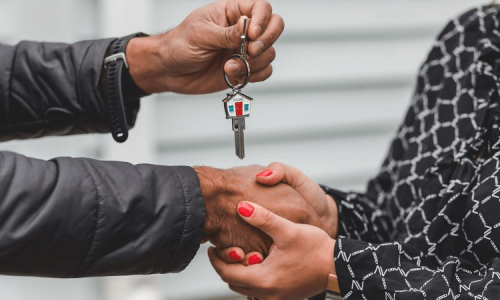-
Lot Size
-
Home Size1,550 sqft
-
Beds4 Beds
-
Baths2 Baths
-
Year Built1978
-
Days on Market8
How to Prepare Your Home for Winter
- Home Care
- October 19, 2023

Should I Prepare My Home for Winter?
Winter is a beautiful season marked by snowflakes, cozy fireplaces, and warm sweaters; however, it also brings harsh weather conditions that can lead to severe consequences if not properly prepared for. As a homeowner, it is your job to properly prepare your house for the upcoming seasons!
But don’t worry. With a little planning and some simple steps, you can ensure that your home is ready to tackle the winter weather head-on.
How Can I Prepare My House for Winter?
There are several key steps to prepare your house for winter:
- Proper Insulation: An important aspect of preparing your home is ensuring that it is properly insulated. Insulation is vital for keeping the house warm and safe, particularly for older individuals whose health may be affected by cold conditions. If you apply insulative materials on your walls and floor, you can potentially save plenty of money on heating and cooling costs. However, it is essential to ensure these insulative materials exhibit fire retardant behavior to maintain safety in the event of a fire.
- Identify and Seal Drafts: Drafts can be a major source of heat loss during the winter. Identifying and sealing drafts is a crucial step in preparing your home for the winter. This can be done by checking for any cracks and gaps in windows, doors, vents, and other areas where cold air may enter or warm air may escape.
- Winterize Your Plumbing: Freezing temperatures can lead to bursting pipes and costly water damage. To prevent this, it is important to winterize your plumbing. This can be done by insulating exposed pipes, draining outdoor faucets and sprinkler systems, and keeping the heat on in your home to prevent freezing temperatures.
- Ensure Heating System Efficiency: Before the cold weather hits, it is essential to have your heating system inspected and serviced by a professional. This will help ensure that it is in good working condition and operating efficiently.
- Check Your Home for Structural Issues: Before the onset of winter, ensure to inspect your home for any structural issues that may be exarcebated in harsh weather conditions. Speak with a Real Estate Agent in Encinitas for information on reliable home inspectors you can use to conduct a proper examination.
Are There Any Safety Measures I Need to Take to Winterize My Home?
Yes, there are several safety measures you should take to winterize your home:
- Install Smoke and Carbon Monoxide Your Detectors in Your Home
- Be Mindful of Fire Safety When Using Supplemental Heaters
- Ensure Any Insulative Materials Used for Winter are Fire Retardant
- Store Garden Hoses in Your Shed
- Have a Professional Inspect Your Home for Any Potential Safety Hazards
- Reverse Your Ceiling Fans to Push the Warm Air Back
- Prevent Icicles By Boosting Your Attic’s Insulation
Make Sure Your House is Ready for the Winter By Working with a Proper Home Inspector!
A good home inspector can help you find any glaring issues in your home’s structure and provide useful tips to prepare it for winter. If you want help finding a proper inspector, you can talk to a Realtor in Encinitas or elsewhere to access suitable candidates! Talk to Realtor Linda Moore today for information about professional home inspectors in your area.










